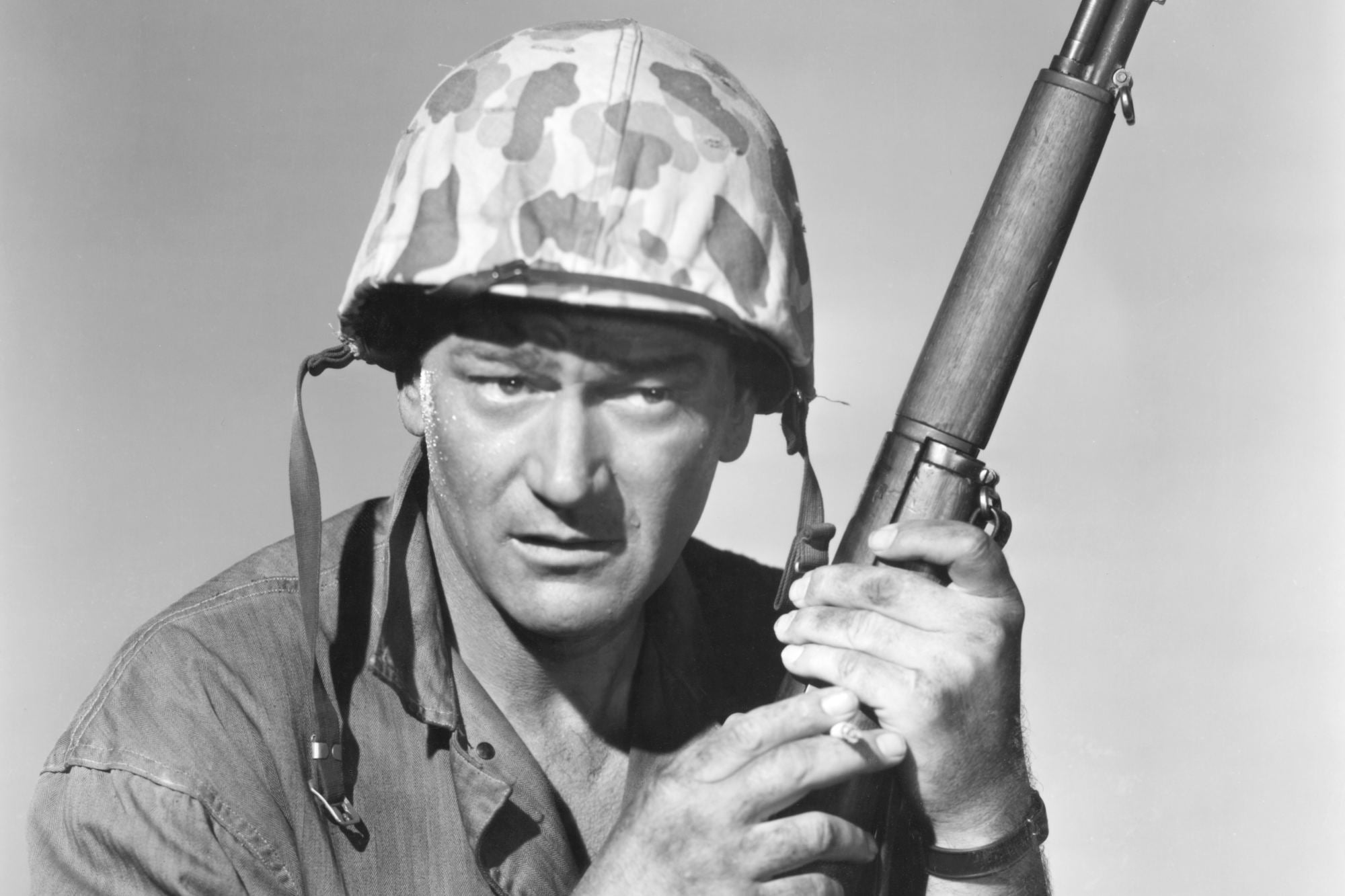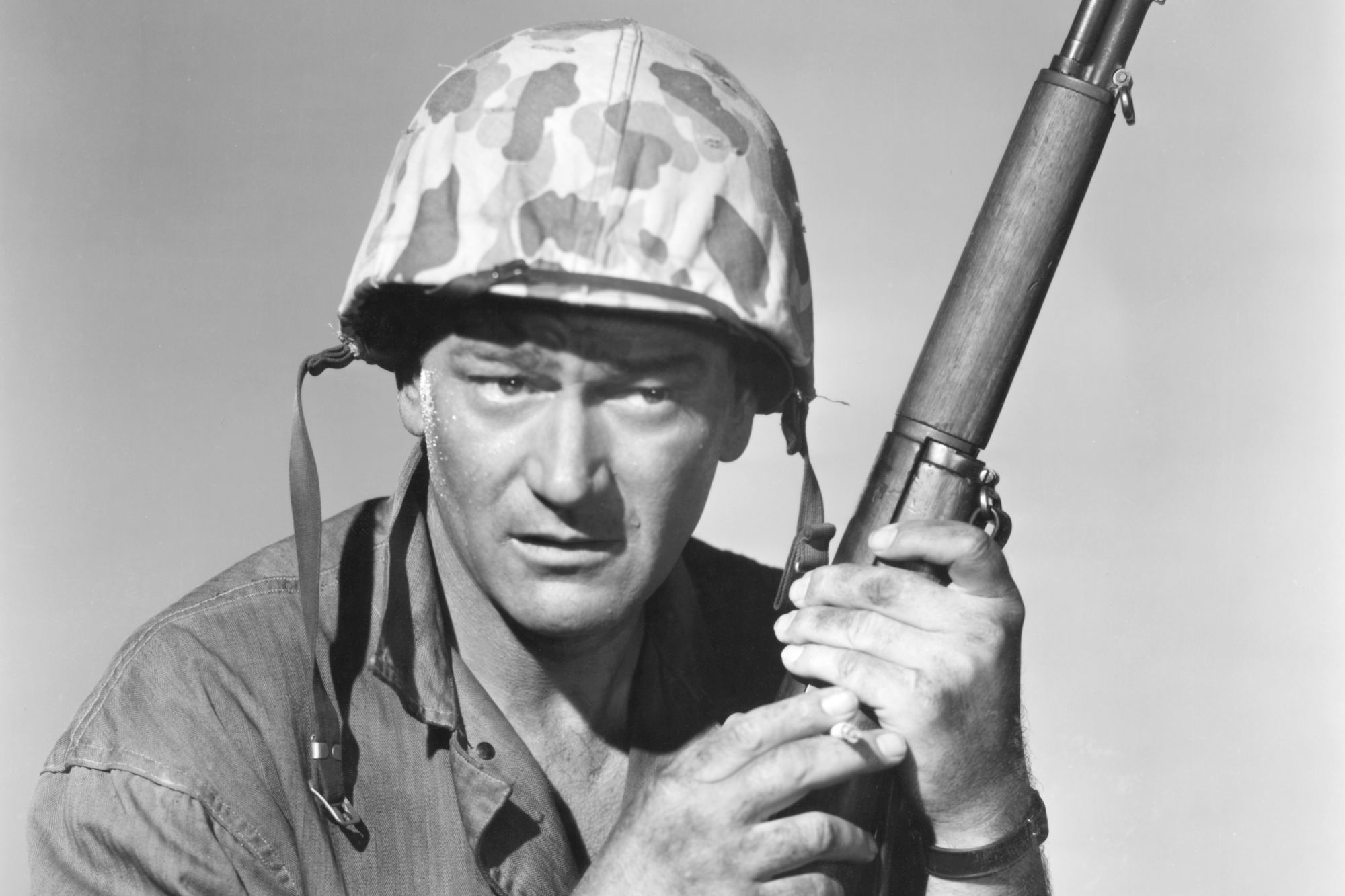
John Wayne Was Told 1 of His Movies Represented the U.S. ‘Better Than the American Serviceman Himself’
Actor John Wayne was passionate about the morals that he instilled in his movies. However, his real-life ones were closely examined and scrutinized because he himself didn’t serve in the U.S. military during the World War II draft. Meanwhile, his fellow male Hollywood leads went off to serve America, while he boosted his career. Nevertheless, Wayne earned a great amount of respect thanks to his films that emphasized nationalist themes and messages.
John Wayne movies represented his American nationalism

Wayne was primarily known for Western and war movies over the course of his career. He occasionally dipped his toes into other genres, such as dramas with 1952’s The Quiet Man, but it wasn’t the typical project for him. Wayne didn’t serve in the military, but he found a way to bring his sense of patriotism through the movies that played on the silver screen.
The legendary actor deemed films, such as 1952’s High Noon, “un-American,” so he refused to accept roles in them. In response, he made 1959’s Rio Bravo to express his hatred for the movie and its messages. Wayne earned an Oscar nomination for his work in 1949’s Sands of Iwo Jima, which introduced themes that he considered appropriate and honorable. This was only the beginning of his career that would continue to put his country at the forefront.
General Douglas MacArthur congratulated John Wayne for how he represented the American serviceman
In Wayne’s infamous interview with Playboy, he talked about the meaning of playing such characters. His Academy Award win for True Grit meant a whole lot to him, even though it didn’t come until much later in his career. Wayne thought he would receive an Oscar nomination for his earlier works, such as Red River and She Wore a Yellow Ribbon, but that didn’t happen quite as planned.
However, Wayne’s performance as Sgt. John M. Stryker in Sands of Iwo Jima stuck with people in a way that made him proud. The story follows his character, whose men under his command hate him, but they’ll need all of the skills that they learned from him. They push through the beaches amid the war, relying on his training to keep them alive.
“I know the Marines, and all the American armed forces were quite proud of my portrayal of Stryker, the Marine sergeant in Iwo,” Wayne said. “At an American Legion convention in Florida, General Douglas MacArthur told me, ‘You represent the American serviceman better than the American serviceman himself.'”
Regardless of Wayne’s awards season runs, he recognized that he was a “box-office champion,” noting that nobody could catch up to him.
John Wayne directed war movies
Wayne didn’t only stand in front of the camera for the war and Western movies. He ultimately found an interest in directing, learning plenty from frequent collaborators, such as John Ford and Henry Hathaway. The films became passion projects that he was dedicated to putting up on the silver screen for the country to see.
The Hollywood studio system refused to make 1960’s The Alamo for years, but he finally managed to get it pushed through. However, he had to agree to star in the movie to help draw more audiences into theater seats as a marketing ploy. Despite appearing to do well at the box office, it took a hit due to a bloated budget. The film made it to the Academy Awards, but a poor campaign didn’t help its chances.
Wayne returned to war movies with The Green Berets in 1968, where he created his commentary on the Vietnam War. Critics hated the movie, although it did quite well at the box office.


